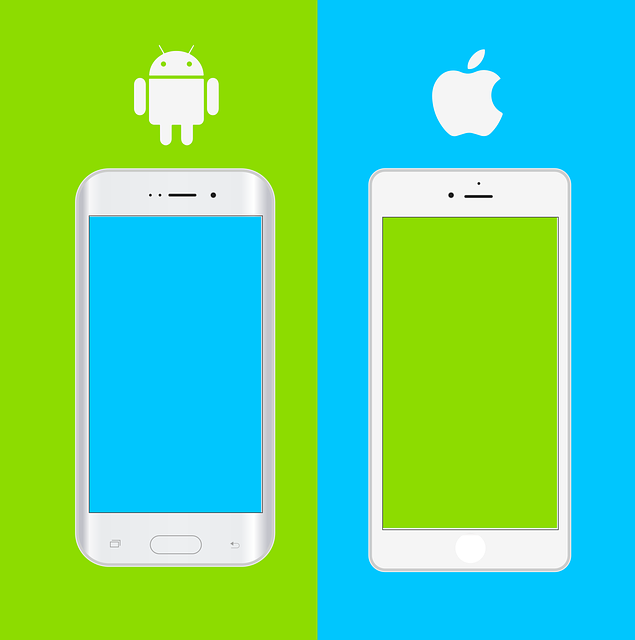Now, in the modern digital era, customers expect a single consistent quality experience on each device anywhere. To meet this requirement, increasing numbers of businesses are resorting to cross-platform development. It can be costly, time-consuming, and complex to develop unique apps for desktop, web, iOS, and Android. A useful solution is provided by a cross-platform app development service, which enables businesses to create reliable, cross-platform apps with a single codebase.
In this piece, we’ll look at the factors that are propelling the trend toward cross-platform development, highlight the technologies that enable it, and discuss why selecting the right development partner is crucial to creating applications that are scalable and ready for the future.
What is cross platform application development?
Cross-platform development refers to the development of software that functions equally well across various operating systems and devices using a single codebase. Rather than developing platform-specific native applications, codes are developed once and deployed to mobile, web, and desktop platforms.
Cross-platform development makes development easier, allowing companies to save money, reduce time-to-market, and deliver unified user experiences on all platforms.
Why cross platform development is on the rise
Cost efficiency
Maintenance of independent codebases for Android and iOS has the tendency to double both the cost and the complexity of development. A cross platform application development service circumvents duplication, providing a more efficient and cost-saving approach.
Faster time to market
With a shared development process, businesses can bring products to market faster. For startups looking to get an MVP out, or companies looking to respond quickly to shifting market dynamics, this is especially crucial.
Unified user experience
Cross-platform frameworks allow for homogeneous design and behavior between devices. This consistency of experience increases brand loyalty and improves user satisfaction.
Easier maintenance and upgrades
Once a bug is fixed or a feature is added in one place, it ripples throughout all platforms. This reduces overhead in maintenance and allows for more rapid iteration cycles.
When to employ a cross platform application development service
Not all projects are suitable for cross-platform development. However, it is an available option when the following holds true:
Building an MVP
Startups are more likely to use cross-platform development for a Minimum Viable Product launch. It allows them to test market demand without spending resources on full-fledged native applications.
Serving a large audience
If your objective is to reach both Android and iOS users simultaneously, cross-platform development can deliver maximum reach with minimum duplication of effort.
Working on a tight budget
For small and medium-sized enterprises, cross-platform development is a feasible way to reduce initial and recurring development costs.
Rebuilding or Refactoring an App
If your existing app is built with outdated technology or you’re managing multiple inconsistent versions, a cross-platform rebuild can streamline your development process and enhance performance.
Popular cross platform frameworks
Flutter
Flutter, which has been developed by Google, allows developers to build stunning and high-performance apps using the Dart language. It contains a rich collection of widgets that can be customized and possesses its own rendering engine, delivering smooth UI and animations across all platforms.
React native
Created by Meta (formerly Facebook), React Native allows developers to write mobile apps in JavaScript and React. It’s ideal for fast development and has an enormous third-party library system.
Xamarin
A Microsoft-supported framework, Xamarin uses C# and .NET for the creation of Android and iOS apps. It works particularly well for organizations that are already invested in the Microsoft stack.
Kotlin multiplatform
Growing in popularity, Kotlin Multiplatform allows developers to code business logic for Android, iOS, and even backend systems as well as platform-specific UI code.
A good cross platform app development service will guide you in choosing the right framework based on your business requirement, budget, and technical needs.
Key features of a good cross platform development service
Choosing the right development partner is the success mantra for your project. Here are a few things which you must look for:
Technical expertise
They should have experience with a number of cross-platform frameworks firsthand and be able to recommend the most appropriate one for your project.
Full-cycle development
A full-service firm will work with you on every step—from discovery and design, through development, deployment, and post-launch maintenance.
Agile development methodology
Using Agile or Scrum methodologies ensures that the development process is open, collaborative, and adaptable to change.
Good portfolio
Look for a portfolio of repeatedly successful cross-platform projects. Case studies, customer success stories, and linkable app store listings are good signs of quality and experience.
Maintenance and support
Technology evolves quickly. A good development partner offers ongoing support to refactor your app, remove bugs, and add new features as your business matures.
Real-life application: Retail app case study
A retail business desired to launch a customer-facing mobile app to enable product exploration, personalized promotions, and in-store pickup capability. They needed a rapid, scalable, and cost-effective solution.
By partnering with a cross platform app development service, they utilized Flutter for app building. The result:
Launch on iOS and Android within 3 months
35% reduced cost of development
Single codebase with consistent performance
4.7-star app store average rating
This success story demonstrates how cross-platform development can fuel digital transformation and customer engagement.
The future of cross platform development
Cross-platform frameworks are advancing rapidly, with performance and capability converging with native development. As businesses seek faster innovation cycles and greater audience reach, the message is unmistakable: cross-platform is the future.
Emerging technologies like Kotlin Multiplatform, Compose Multiplatform, and Progressive Web Apps (PWAs) are even broadening what can be done with cross platform shared codebases. Top cross platform app development service providers are at the forefront of such technologies so that your app remains current and competitive at all times.
Conclusion
In today’s more mobile, multi-device environment, delivering seamless digital experiences across platforms is no longer a nicety—it’s a requirement. Cross-platform development offers an intelligent, cost-saving solution for building apps that perform well, look great, and scale effortlessly.
By tapping into a reliable cross platform app development service, you can save money, speed up your launch, and deliver a consistent user experience—without sacrificing quality.
Whether you’re a new company trying to disrupt the market or an established business in need of being brought online, the future is cross-platform—and you should get in on it now.











Leave a Reply